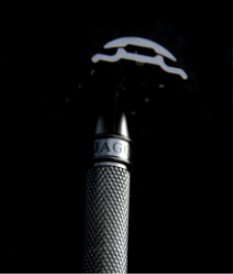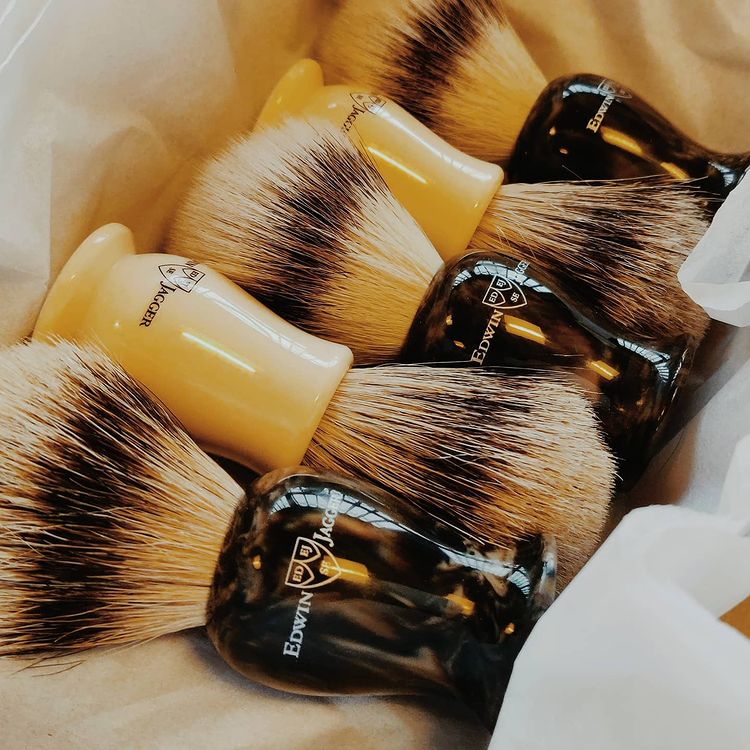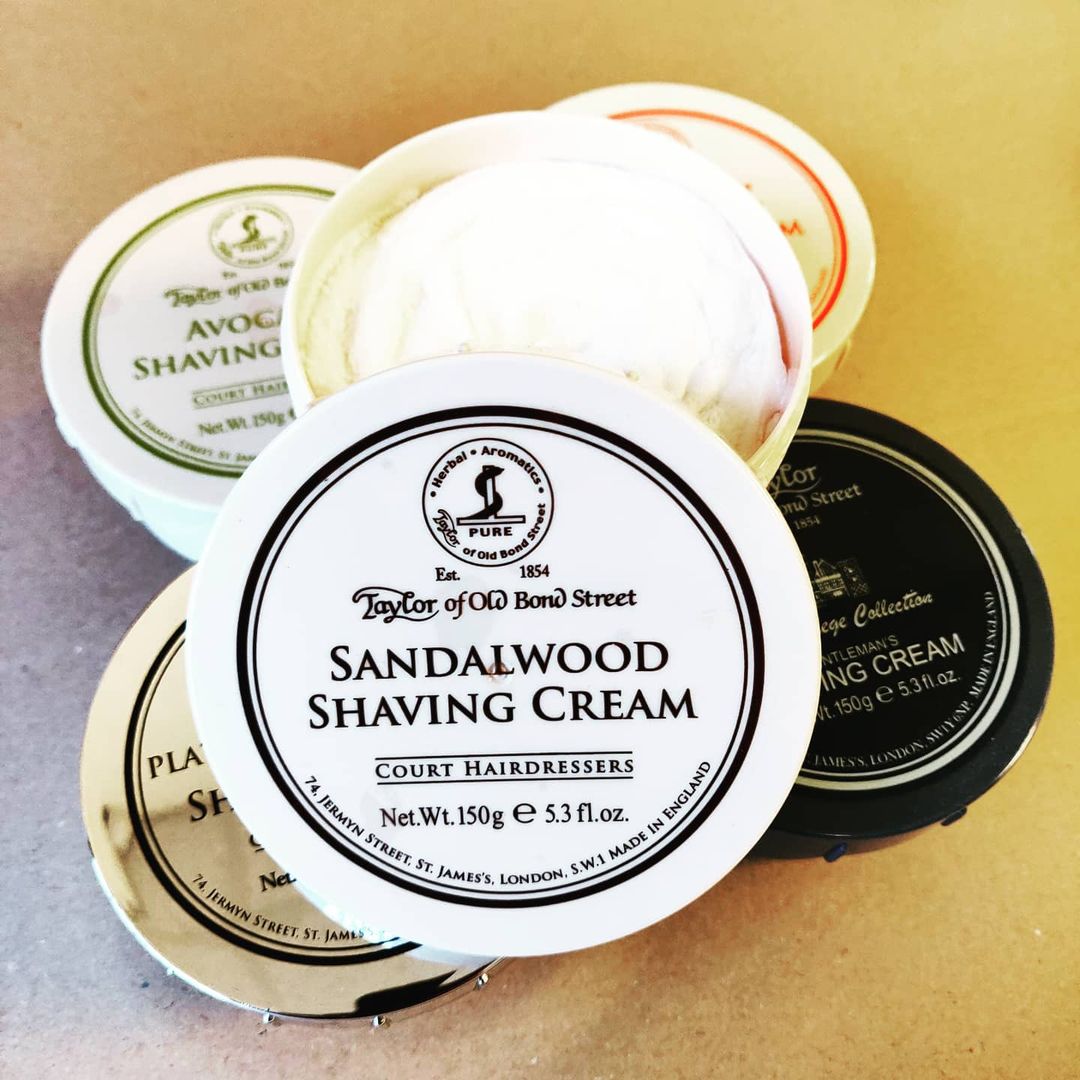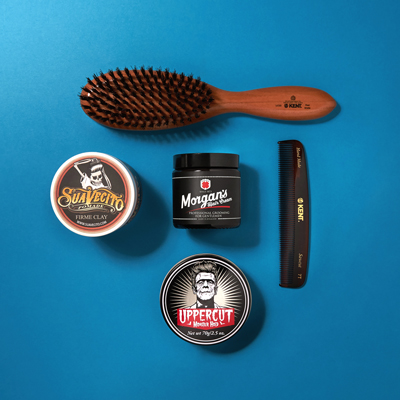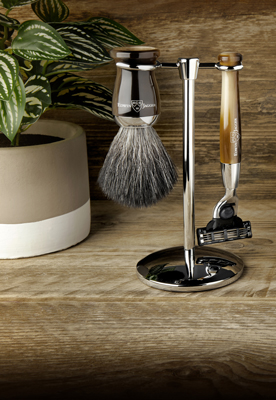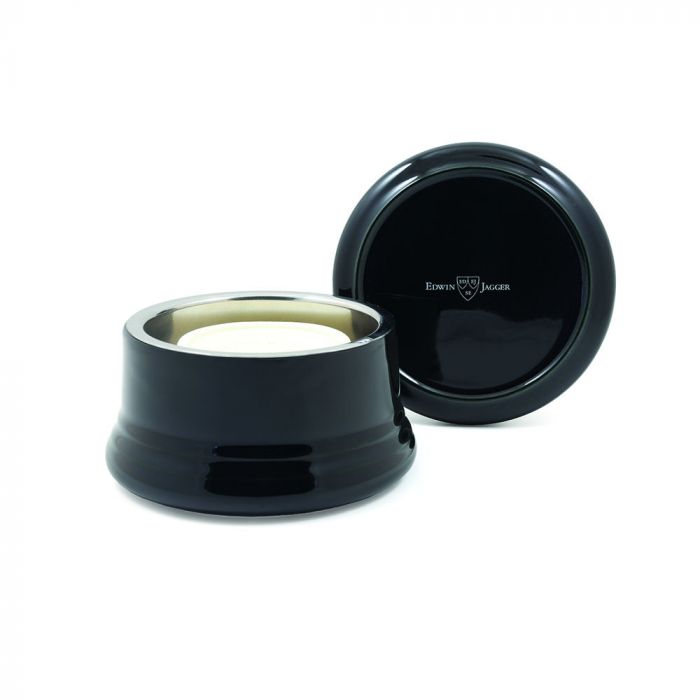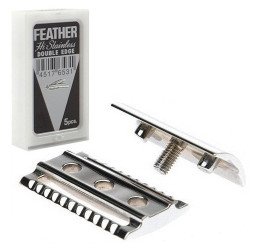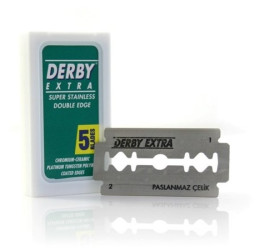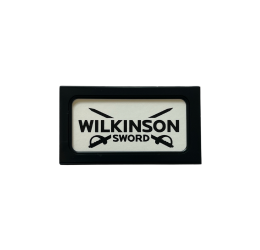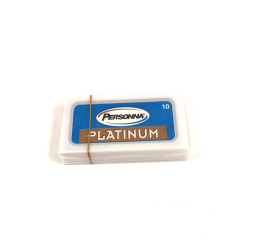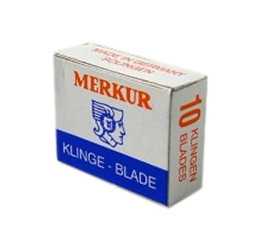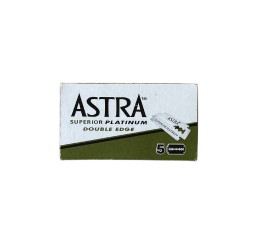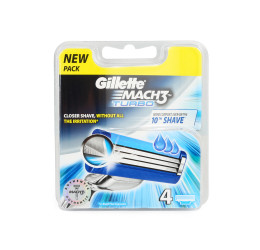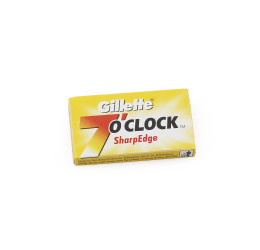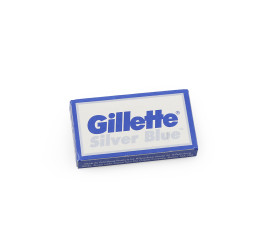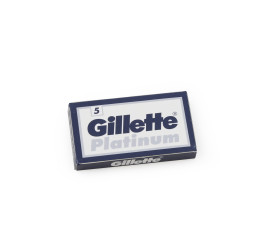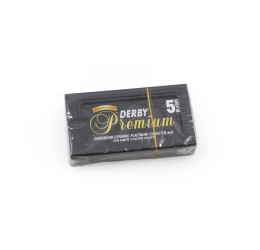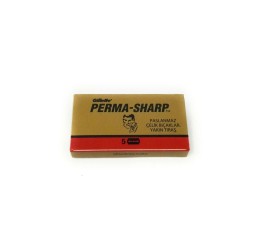How Different Are Different Razor Blades?
If you’re purchasing a double edge safety razor for the first time, you’ll have to choose which razor blades you want to use with it. When you discover the vast array of razor blades on offer, you might find yourself asking - how different are different razor blades? They can vary in price from 15-60p a blade, so how do you know which to get? This guide will help you to understand the difference between safety razor blades so you can choose the best one for you.
 One of the great things about traditional shaving with a DE razor is that you can customise your experience with different razors and different blades. You can tailor your shave to your skin type and hair type. Choosing the right razor blades for you will really help with this and ensure you get a smooth and irritation-free shave. All the blades we stock at The English Shaving Company will easily cut through any type of hair, but the differences in material and sharpness will impact how the blade works with your razor, skin and hair type.
One of the great things about traditional shaving with a DE razor is that you can customise your experience with different razors and different blades. You can tailor your shave to your skin type and hair type. Choosing the right razor blades for you will really help with this and ensure you get a smooth and irritation-free shave. All the blades we stock at The English Shaving Company will easily cut through any type of hair, but the differences in material and sharpness will impact how the blade works with your razor, skin and hair type.
Key Differences in Razor Blades
There are three key differences in razor blades that will impact how each one performs for your skin and hair type.
1. Coating & Material
Razor blades will sometimes come in a different material such as carbon steel, but the vast majority will be made from stainless steel. This is the material of choice because it’s easy to work with and rust-resistant which helps the blade to last longer. It’s usually the coating of the blades that differs the most. Some blades won’t have any coating at all but many might be platinum, PTFE (e.g. Teflon), chromium, ceramic or tungsten coated. The coating helps with rust prevention, provides additional lubrication and reduces snagging and buildup which makes the razor blade easier to clean. Sometimes a coating is used to make the blade harder so it will last longer before becoming dull. Platinum coating is one of the most common blade coatings. It’s designed to keep the blade sharp without causing imperfections. PTFE coating reduces the friction between the blade and your skin helping to minimise irritation which makes it a good choice is you have sensitive skin. Chromium coating helps minimise corrosion of the blade which would otherwise cause the blade to become dull and increase the risk of nicks and cuts. Ceramic coating has a similar role as chromium; helping the blades to last longer.
2. Sharpness
Every double edge safety razor blade will be sharp, but some are sharper than others and this will impact how aggressive they are. For example, Feather blades and Astra blades are known for being some of the sharpest blades on the market. Very sharp blades could be great for you as they mean you’ll need less passes to get a close shave. However, if you have sensitive skin it could lead to more irritation because the blade will interact with your skin much more, and if you’re new to using a safety razor it could lead to more nicks and cuts. On the other hand, a sharp blade means you’ll barely need to use any pressure when shaving, which could result in less irritation. It all comes down to your skin type.
3. Manufacturing
The way the blade is manufactured will inevitably vary between different brands and companies. This does make a difference to the way the blade performs, but it’s difficult to find out the precise manufacturing processes. The best thing to do is try a number of different brands and see which you prefer.
Which Blade Is Best For You?
With the main differences covered, how do you determine which blade is best for you? It will depend on your skin type, hair type and experience as to what level of aggression you want from your blade.
New To Shaving
If you’re new to shaving with a DE razor you might want to look for a blade that’s on the less aggressive end of the spectrum. This will help you with adjusting to shaving with a safety razor as it will minimise the risk of cuts and nicks. It’s also advisable to look for a blade with a coating that reduces friction and makes the shave less aggressive. Look for a PTFE coated blade, like Voskhod blades, or try:
Derby Premium Blades
- Four types of coating to reduce irritation and the risk of nicks while improving the lifespan of the blade
- Sharp, but not too aggressive
- Suitable for sensitive skin
Sensitive Skin
To avoid aggravating sensitive skin, you’ll need to choose a razor blade that isn’t too aggressive. Derby are often considered one of the best choices for sensitive skin as we mentioned above, but there are others that also work well.
Gillette Silver Blue Blades
- Teflon coating to reduce friction
- Despite the coating they’re extremely sharp
- Produce a smooth, close shave with less irritation
Thick Hair
If you have thick hair, you might want to look for a more aggressive, sharper blade. This will help you to get a closer shave even with thick hair.
Feather Razor Blades
- One of the sharpest blades on the international market
- Platinum alloy and resin coating for a longer lifespan
- Ideal for thick hair or stubble that’s grown out a little
 If you’re looking to find the perfect razor blade for your skin, we’d recommend reading our tips above then trying out a few different brands. It’s only by trying them for yourself that you’ll discover which blades best suit you. View our full range of razor blades and find your next favourite.
If you’re looking to find the perfect razor blade for your skin, we’d recommend reading our tips above then trying out a few different brands. It’s only by trying them for yourself that you’ll discover which blades best suit you. View our full range of razor blades and find your next favourite.



